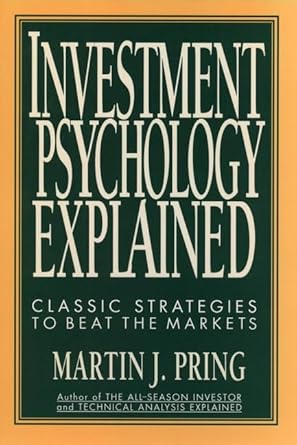When trading in the financial market, it is vital to understand how emotional control is fundamental to success. The psychology of trading is an essential aspect to consider for both long-term investors and short-term traders. Emotional control has a profound effect on traders’ ability to remain clear-headed during trading decisions, as well as to evaluate risk and return in a balanced manner.
One of the main reasons many traders fail is that they cannot recognize their feelings while trading. Fear, greed, and excitement can prevent traders from making rational decisions at critical moments. This can lead to costly mistakes and significant financial losses. Therefore, developing a disciplined mental approach to trading is crucial to minimize emotional errors.

Discipline, Strategies, and Limits
Having discipline also means maintaining consistency in your approach to trading. It involves having a method, a set of rules that govern your decision-making process. However, every trader needs to keep in mind that winning strategies often require patience before they become profitable. By setting realistic goals, traders can use short-term and long-term targets to measure progress, gradually increasing their financial stakes.
The amount of money a trader is handling impacts their emotions. Therefore, the financial value of the trades needs to align with their reality and risk management. If you are experiencing emotional issues in day trading or investing, drastically reduce your financial exposure. Once you become accustomed to that value and feel that you are operating technically, without emotions, then you can gradually increase your stake.
Establishing daily loss limits and loss limits per trade is very important for providing additional psychological support. Knowing that, in the worst-case scenario, you will lose X and no more than X, makes you more at ease.

Tool for Self-Control
Another useful tool to help manage the psychology of trading is to monitor the statistics of your trades through a kind of Trader’s Journal. This provides valuable feedback on when to seize profitable opportunities and when to scale back your positions when necessary.
I’ll leave a link here for you to download a trade journal spreadsheet for free, so you can track your results and the evolution of your trading strategy:
(https://materiais.ocaradomercado.com.br/diario-de-trade)

Focus on Process and Technique
One tip for better emotional control is to focus entirely on the process rather than the outcome. If the process is well executed, the results will follow. Another tip is to ignore the news; what matters is price action. In technical analysis, the price reflects everything. A technical approach helps with the emotional aspect, as the entry and exit signals will have fewer variables and less subjectivity compared to someone who is observing macroeconomics and company earnings reports.
Traders need to be aware of the market’s psychology. Essentially, two main emotions govern the decisions of thousands of buyers and sellers, and these emotions are expressed in the charts. For example, a large upper shadow on a candlestick might reveal the fear that temporarily gripped that market. Similarly, a price significantly extended from the moving average indicates that greed has taken over the market participants, making it very risky to enter a long position.

Mastering Emotions to Profit
You also need to observe your own emotions, your moments of greed and fear. By controlling these emotions and adopting a disciplined mindset, you can significantly maximize your profits in the market.
Do you want to succeed in trading? Then you need to invest your time in understanding the psychology of trading and disciplining your emotions. A recommended read is Martin Pring’s book: ‘Investment Psychology Explained’.

Focus on the Long Term
If you invest part of your time in monitoring your own thoughts, feelings, and attitudes while trading, you can greatly improve your performance. This can also be included in your trading journal as a footnote—what did you feel during that trade, what were your thoughts?
I cannot emphasize enough that keeping a long-term focus will help you maintain rationality and control your emotions. It doesn’t matter if you’re a scalper making trades that last only a few seconds; your focus should be on the long term. There will be bad months and good months, but keeping your eyes on the long term helps alleviate emotional stress.
This approach will allow you to make better trading decisions and achieve consistent results in the financial market. When you combine this with technical analysis, you’ll be better prepared for successful trading!

Awareness is Key
Be disciplined and mindful of your decisions while trading, and even in your everyday life. Make smart choices within your trading plan. Some traders find it beneficial to meditate before trading; there are plenty of resources on YouTube to help you learn how.
To summarize, if you want to reach the next level as a trader, start adopting techniques to control your emotions and study the psychology of trading. There are videos on this channel about it. If you maintain discipline and emotional balance, you will have a higher probability of achieving consistent profits in the financial market! Good luck, happy trading, and a big hug!
Check out my video on this topic:

